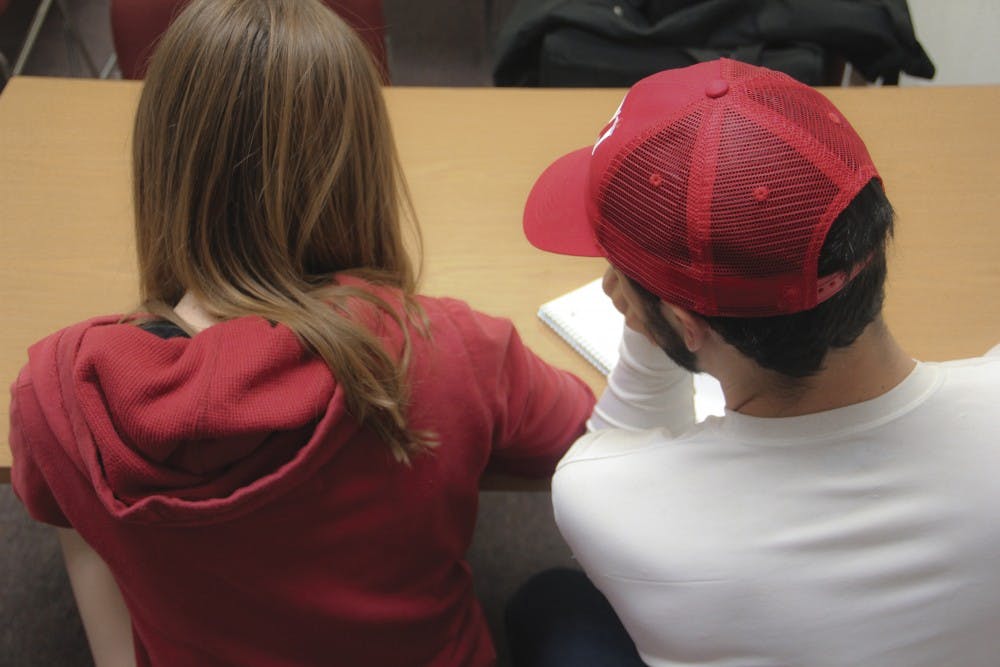Cases of academic misconduct across Penn increased 8.6 percent, from 185 to 201 cases, in the last academic year, according to the 2016 Report of the Office of Student Conduct.
Director of the Office of Student Conduct Julie Lyzinski Nettleton believes the increase was mostly due to OSC’s increased outreach efforts to academic departments rather than an actual increase in misconduct.
“I don’t think there’s an increase in academic integrity violations that are happening,” she said. “I think what is happening is that there’s a stronger partnership between our office and the school and the faculty. There [are] more open lines of communication, and schools are more willing to be part of the conversation and submit cases to us when it’s appropriate.”
Among undergraduates, total academic misconduct remained essentially unchanged from last year to this year, with an increase of just two cases from last year’s report. However, specific categories within the academic misconduct category experienced sharp increases.
Instances of “unauthorized collaboration” more than doubled from 67 cases in 2014-2015 to 105 in 2015-2016, and instances of “unfair advantage” almost tripled from 7 to 20 cases.

Lyzinski Nettelton defined “unfair advantage” as “anytime a student has access to something other students don’t,” such as a falsified doctor’s note to get extra time to write an essay.
Unfair advantage cases, she said, also usually involved cases of groups of students, which would exaggerate the frequency of the cases happening in a report.
“I don’t think unfair advantage is happening more frequently — it’s more like the cases might have a few more people in them,” she said. “It’s not an uncommon thing.”
As for instances of unauthorized collaboration, which saw a substantial increase, Lyzinski Nettleton said a small handful of classes were responsible for “the majority of these cases” each year.
“Different classes have different policies around collaboration,” she said. “Some of those classes are challenging for students, and navigating how to work with each other can take an extra step on the student’s part to really understand what the policies are.”
One prime example of such a class at Penn is CIS 110, the introductory computer science class at the School of Engineering and Applied Science. Arvind Bhusnurmath, a lecturer at SEAS who has taught CIS 110, said students are often reported to the OSC because they do not properly read and understand the course’s policies on coding collaboration.
“Our policies state very clearly that you can’t share code,” Bhusnurmath said. “There might be this conception among students that we send way too many cases, but we don’t feel that’s actually happening. We feel that the number of cases would be reduced dramatically if students just followed that policy.”
Even glancing briefly at a classmate’s homework code, or asking to see “a little piece” of it, Bhusnurmath explained, could be dangerous for students to do. At the introductory level, where students don’t tend to know much about coding, they may end up implicitly copying what they saw from their classmates and getting in trouble later. In computer science, copying shows up very easily.
The Office of Student Conduct deals with most instances of academic integrity by imposing “academic sanctions,” Lyzinski Nettleton said, like having the student write an essay explaining why they cheated and what they learned from the ordeal. The majority of students that the OSC sees for first-time violations in academic misconduct do not come back a second time.
“In most cases, I think students are not deliberately trying to copy,” Bhusnurmath said. “They’re trying to be within the policy in whatever way they think is within the policy, but they might usually be stepping over the lines.”
Lyzinski Nettleton agreed, emphasizing that students be proactive and clearly understand policies before diving into a class.
“If you have questions about what the policies mean, talk to the professor,” she said. “It’s always better to ask for clarification than to realize in the aftermath that what you did might have stepped over the line.”









